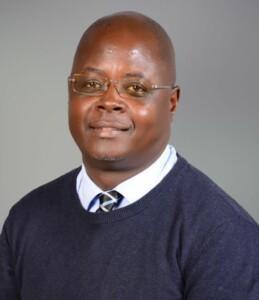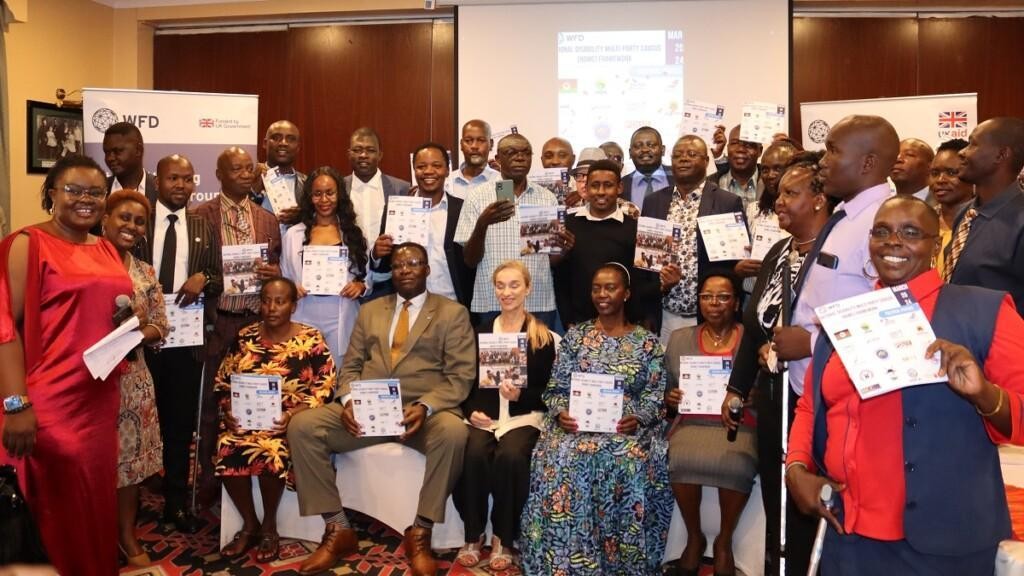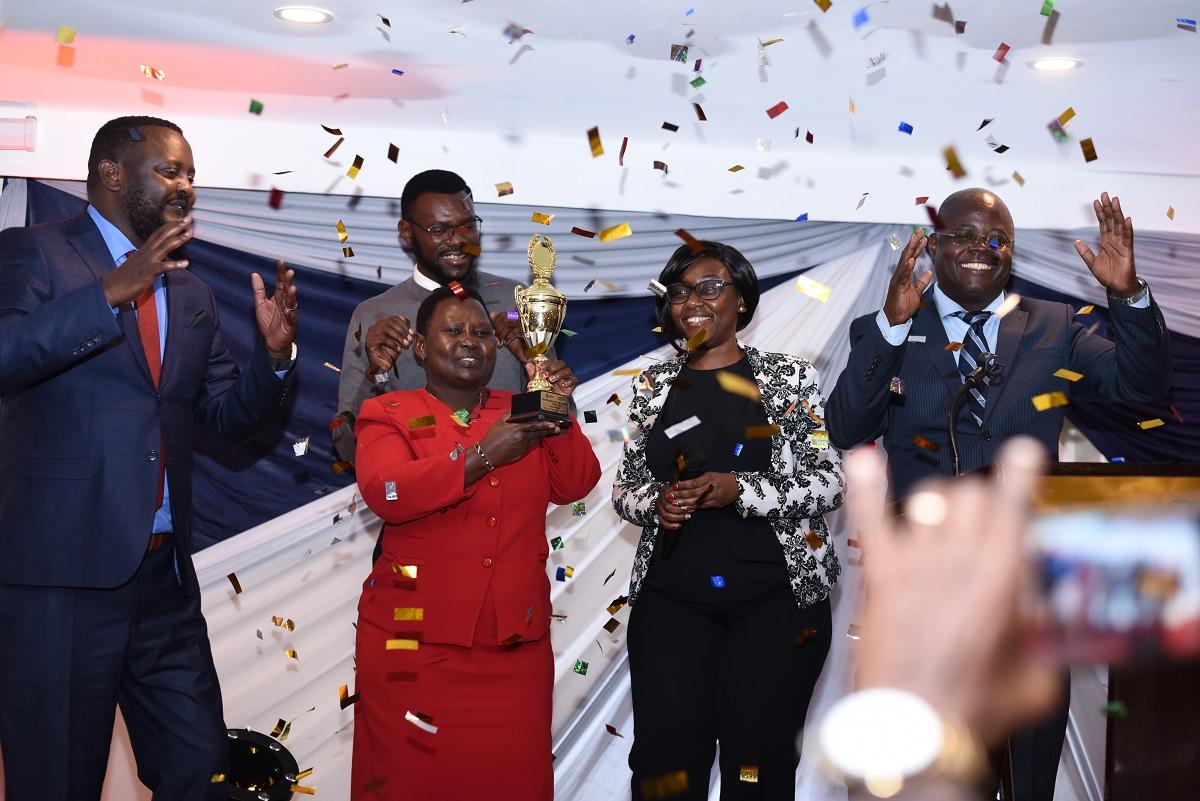For a long time, there was no real inclusion of persons with disabilities in political parties, recalls Nickson Kakiri, President of the disability league of Kenya’s largest opposition party, the Orange Democratic Movement (ODM). The party’s constitution recognised women’s league and youth league but did not recognise the disability league. Unless disability is recognised in the political party documents, those who advocate for disability inclusion are forced to work within their own group without wider support from the party. In this situation, the advocacy for disability inclusion is ad hoc in nature, not permanent. It is also almost impossible to find resources for it. However, the UN Convention on the Rights of Persons with Disabilities (UNCRPD) puts an obligation on state parties to ensure persons with disabilities enjoy their political rights.

Kakiri joined the ODM in 2006 and after a successful campaign was elected as the party’s Secretary for disability affairs. However, this was only a nominal position, and things did not move forward. The rights of persons with disabilities are well protected in Kenya’s legislation but poorly implemented in practice. Many political parties lacked the will and expertise to support the political participation of persons with disabilities, and organisations of persons with disabilities had limited relations with political parties and their knowledge and experience was not utilised.
Kakiri himself is a Deaf person and had experience of advocacy work in the Kenya National Association of Deaf, but he describes his early years in politics as a struggle. The ODM disability league was established in 2016, but initially had no formal role in the party.
Changes in attitudes as well as tangible progress
Despite these challenges, a lot has happened in recent years. The ODM party has recognised the disability league in its constitution, and now organises its events in accessible venues and uses sign language interpretation. Of all the Kenyan political parties, ODM has the highest number of persons with disabilities elected and nominated, both at local level and in the Parliament.
ODM’s disability league now also has representation in the nomination process for elections. Elections and nomination rules have been amended to incorporate the representation of the disability league from polling stations to the national level. The Party County Coordinating Committee is also expected to include persons with disabilities in its structure. At the National Executive Committee (NEC) there are three persons with disabilities, including Kakiri. In the recent National Governing Council (NGC) meeting, the NEC proposed further amendment of the party constitution to include disability league in the Central Management Committee (CMC) which is the highest decision-making organ of the party, chaired by the party leader. The NGC approved the proposal which now allows Kakiri to sit in the CMC.
“The party listens to us”, Kakiri says.
Demo Finland and the Westminster Foundation for Democracy (WFD) launched the Kenya Inclusive Political Parties (KIPP) programme in 2020 to strengthen the civil and political rights of persons with disabilities in Kenya. The programme is implemented in partnership with political parties, organisations of persons with disabilities and other civil society organisations. The programme supports political parties in promoting the inclusion of persons with disabilities and strengthens the advocacy skills of civil society organisations so that they can more effectively engage with political parties.
In 2021, political parties and CSOs worked together under the KIPP programme to develop minimum standards of inclusion for political parties. The standards are based on data and research, and the document has served as an important lever for the ODM’s disability league to convince party leadership of the need for change. The party leadership has also listened to and implemented recommendations of the KIPP project’s 2022 mid-term evaluation.
Nickson Kakiri has noticed a change in attitudes and awareness: “The party is becoming more aware of the importance of inclusion of persons with disabilities and their needs. It makes my job easier. They listen to me when I remind them about accessibility.”
Political parties working together
The KIPP programme has also brought political parties together to strengthen the inclusion of persons with disabilities. Joint training sessions have been organised for the political parties, and a technical working group of political parties and organisations of persons with disabilities has been set up to monitor the parties’ activities from inclusion perspective and to bring expertise to the parties. Co-operation between political parties is new: even those who do not use sign language could understand from Nickson Kakiri’s reaction to a question about previous multi-party co-operation that it was unprecedented.
“Before the KIPP programme, we had never had interaction with other political parties. That was out of the question. People only thought about the interests of their own party. KIPP brought us together,” says Kakiri.
According to Kakiri, political parties have shared experiences and practices and learnt from each other, which has been helpful. “Politics is interaction and cross-learning.”
In March, Kenyan political parties set up the National Disability Multi-Party Caucus, which is a platform for dialogue, advocacy, and policy formulation aimed at addressing the needs and concerns of persons with disabilities. There have been no similar initiatives bringing together political actors on such a broad scale in Kenya, so the establishment of the Caucus is a milestone both for the KIPP programme and for the Kenyan political scene in general.
“Who would possibly have thought that government and opposition parties sit together like this!”, Kakiri laughs.

Towards next goals
Nickson Kakiri welcomes the changes that have taken place at national level and the development of co-operation between the political parties. But he is already looking to the next steps: “We need to work at the grassroots level, and a lot of resources are needed to do that.”
Kakiri wants to work at local level so that persons with disabilities are more aware of their rights. He wants to raise awareness about how to join political parties and what the process is for getting nominated for election. He also has no intention of staying in the position of the President of the disability league forever, and needs new active members to take the lead. According to Kakiri, mentoring, leadership development and empowerment of people at grassroots level are much needed.
A major shift in attitudes and awareness has already taken place at the central level of several political parties, as disability inclusion is now understood from a human rights perspective rather than a charity issue. There is still work to be done at local level, but political parties are now supporting their disability leagues and are committed to strengthening the inclusion of persons with disabilities. Ultimately, a more inclusive multi-party system means more democratic decision-making.
Main photo: ODM party receiving the KIPP Award. The Award recognises and celebrates political parties that demonstrate exceptional commitment to inclusivity and actively work towards creating an environment conducive for persons with disabilities to participate in politics. Photo credit: WFD

